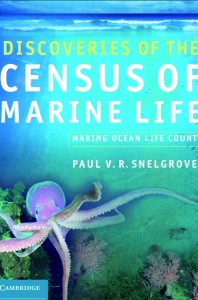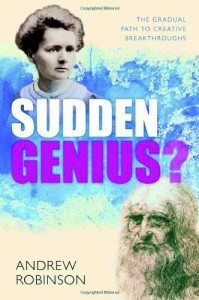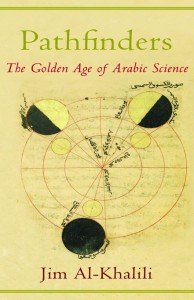SATURDAY, 29 JANUARY 2011
Ocean covers 71per cent of the surface of the Earth, yet very little is known about the species it contains. The Census of Marine Life, an international initiative, was established in 2000 to address the “diversity, distribution and abundance” of marine species and involves a variety of projects. Paul Snelgrove, who oversaw the final synthesis phase of this ten year endeavour, has written this book to bring its discoveries to a wide audience. In a highly readable manner, he outlines both the various inventive methods employed and the discoveries made, and the book is illustrated throughout with photographs of fascinating species.
This work was, however, not carried out purely for the sake of curiosity, as a loss of ocean biodiversity could have serious consequences for the environment. Yet Snelgrove ends with a positive message about the future of our oceans. The more information we possess, the better we can act to sustain marine resources, and the Census is a vital starting point for the expansion of our knowledge. This book conveys the enthusiasm the author feels for his subject, and is well worth reading for anyone curious about the life that exists beneath the surface of the ocean. Catherine Moir
Sudden Genius: The Gradual Path to Creative Breakthroughs
“Eureka!” exclaimed archimedes upon witnessing water displacement as he got into his bath—or so history would have us believe. But do geniuses really have these so-called ‘eureka’ moments of clear inspiration? Moreover, can you define a genius empirically? Andrew Robinson addresses these and other questions in his highly recommended new book, Sudden Genius. He opens with an exploration of the scientific study of such exceptional creativity, looking at the roles that intelligence, talent, unconscious thought and mental illnesses may play. Throughout, Robinson uses plenty of examples and anecdotes that prevent it from becoming too academic.
The majority of this book, however, focuses on the lives of ten remarkable individuals from both artistic and scientific domains, prior to, and during, their major breakthroughs or discoveries. These include Einstein’s special theory of relativity, Mozart’s Marriage of Figaro and Champollion’s decipherment of Egyptian hieroglyphs. Robinson’s varied choice of geniuses illustrates the large diversity of characteristics, family backgrounds and educations found amongst exceptionally creative people. Although there doesn’t seem to be a set pattern amongst the ten geniuses, Robinson concludes with the interesting observation that almost all major breakthroughs required immersion in the chosen subject for about ten years prior to the discovery. Nicola Stead
Pathfinders: The Golden Age of Arabic Science
“The ink of a scholar is more sacred than the blood of a martyr.” Jim Al-Khalili opens his account of the history of science in the Islamic world with this powerful quote. It’s an apt choice because most of this book challenges widely held misconceptions about the influence that Muslim nations have had on science. Not that this is in any way a book about Islam: Al-Khalili is careful to point out that the phrase “Muslim Science” is a misnomer just as “Jewish Science” was during Nazi Germany.
Most people view scientific achievement as ending with the Greeks and beginning again during the Renaissance. We like to fashion the in-between as the ‘Dark Ages’. But while this was true in Europe, it was contrasted by a golden age of discovery in the Middle East in areas such as chemistry, physics, medicine and astronomy.
Al-Khalil shows that scientific discovery is a continuous process which has passed between different cultures across the centuries. He also discusses, ultimately, how the Arabic world lost its influence, to the benefit of the western world. For the most part he succeeds in this. The chapters are concise and paint a clean continuous narrative, although the pictures seem hastily assembled and out of line with the text. But this doesn’t detract too much from the overall message: that so-called modern science originated in the east during an incredible era. Al-Khalili makes it clear that this is an era which can and should return. Anders Aufderhorst-Roberts



